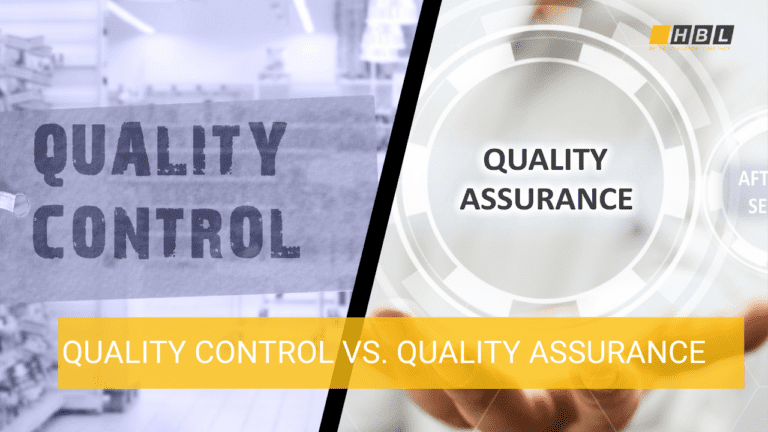Software engineering is a dynamic field that offers a wide range of specializations, each playing a crucial role in building and maintaining modern technology. From crafting intuitive user experiences to ensuring robust backend systems, types of software engineers cater to specific needs in the development lifecycle. Understanding these roles not only helps businesses build efficient teams but also guides aspiring engineers in choosing the right career path.
In this article, we’ll dive into the key types of software engineers, their responsibilities, and the skills required to excel in each domain.
What is software engineering?
Software engineering is the disciplined approach to designing, developing, testing, and maintaining software applications. It combines principles of computer science, engineering, and project management to create reliable, efficient, and scalable software solutions.
Addressing complex problems and ensuring that software meets user needs while maintaining quality and functionality rely heavily on the principles and practices of software engineering.
Software engineering encompasses various specializations such as front-end development, back-end development, DevOps, data engineering, and machine learning engineering. Each type plays a specific role in the software lifecycle, contributing to the creation of modern technologies used in businesses and everyday life. These specializations ensure that software systems are not only functional but also optimized for performance, user experience, and security.
Software engineers commonly utilize languages such as Java, JavaScript, SQL, C++, C#, Python, HTML, and CSS for a wide range of development tasks. Meanwhile, those working in specialized fields or unique projects often leverage lesser-known programming languages like Ruby, PHP, Rust, or Swift, tailored to specific applications or frameworks.
15 Difference Types of Software Engineers
Let’s explore a list of 15 types of software engineers and discover how they can contribute to your business.
1. Front-end engineer
Front-end engineers are responsible for creating the visual elements of software applications that users interact with directly. They focus on crafting interfaces that are both aesthetically pleasing and highly functional.
Responsibilities:
- Building the graphical interface using HTML, CSS, and JavaScript.
- Implementing frameworks like React, Angular, or Vue.js to create dynamic web pages.
- Ensuring cross-browser compatibility and optimizing the user interface for performance.
- Collaborating with designers to translate wireframes and mockups into functional applications.
Business Contribution:
Front-end engineers play a vital role in creating a positive first impression of a product or service. A well-designed interface can improve user retention, enhance customer satisfaction, and boost conversion rates for e-commerce and other online platforms.
2. Back-end engineer
Back-end engineers focus on the service-side components of an application, managing the logic, databases, and performance of the system. Their work ensures the application functions reliably behind the scenes.
Responsibilities
- Developing server-side logic using languages like Python, Java, PHP, or Ruby.
- Managing databases (e.g., MySQL, PostgreSQL, MongoDB) to store and retrieve data securely.
- Creating APIs for seamless communication between the front-end and back-end.
- Ensuring server reliability, scalability, and security.
Business Contribution:
Back-end engineers ensure that the application can handle large amounts of data and user requests with downtime
3. Full-stack engineer
Full-stack engineers combine front-end and back-end expertise, making them versatile contributors to any software development project. They can work across the entire technology stack, from user interfaces to server logic.
Responsibilities:
- Building and maintaining both client-side and server-side functionalities.
- Utilizing technology stacks like MERN (MongoDB, Express.js, React, Node.js) or LAMP (Linux, Apache, MySQL, PHP).
- Troubleshooting issues across the application to ensure smooth integration between components.
- Collaborating with cross-functional teams to manage all aspects of development.
Business Contribution:
Full-stack engineers are invaluable for startups and small businesses due to their ability to handle diverse tasks. Their flexibility helps reduce costs, streamline workflows, and accelerate project timelines.
4. Software Testers
Software testers are professionals responsible for evaluating and validating software applications to ensure they meet specified requirements and function correctly. Their primary goal is to identify and fix issues before the software is released, improving overall quality and user satisfaction. Testing can involve manual processes, automated scripts, or a combination of both.

Software testers play a vital role in the Software Development Life Cycle (SDLC) by ensuring the final product is reliable, secure, and user-friendly. They collaborate with developers, product managers, and other stakeholders to maintain high-quality standards.
Responsibilities
- Test Design & Execution: Plan, create, and run test cases for various testing types (functional, regression, performance).
- Bug Identification & Reporting: Detect and document issues for resolution.
- Collaboration: Work with developers and stakeholders to improve software quality.
- Automation & Tools: Use tools like Selenium or JUnit to streamline the testing process
5. DevOps Engineer
DevOps engineers bridge the gap between development and IT operations, focusing on improving collaboration and ensuring smooth, efficient software delivery. They use tools like Jenkins, Docker, and Kubernetes to streamline deployment processes.
Responsibilities
- Building and managing CI/CD pipelines.
- Automating infrastructure and application deployments.
- Monitoring software performance and resolving system bottlenecks.
Business Contribution
DevOps engineers are vital for businesses looking to accelerate their software development lifecycle. They ensure faster deployment and reliable software delivery, which is critical for organizations embracing continuous innovation.
6. Data Engineer
Data engineers design and manage systems for collecting, storing, and processing data. They work on making data accessible to analysts and decision-makers, often using tools like Hadoop, Spark, and SQL.
Responsibilities
- Building scalable data pipelines.
- Designing and maintaining databases and data warehouses.
- Ensuring data integrity and security.
Business Contribution
These professionals enable businesses to derive insights from data by ensuring data reliability and accessibility. Data engineers are particularly critical for companies relying on data-driven strategies, such as retail for customer analytics or finance for fraud detection.
7. Software Integration Engineer
Software integration engineers focus on connecting different software systems, ensuring they work seamlessly as part of a larger ecosystem. They specialize in APIs and middleware solutions.
Responsibilities
- Designing and implementing integration solutions.
- Debugging and resolving integration issues.
- Ensuring smooth communication between systems.
Business Contribution: By enabling seamless software integration, these engineers ensure operational efficiency and reduce manual processes. This is especially crucial for businesses that rely on multiple software tools to operate effectively, such as enterprises using CRM and ERP systems in tandem
8. CRM Project Manager
CRM (Customer Relationship Management) Project Managers oversee the implementation and management of CRM systems like Salesforce, HubSpot, or Microsoft Dynamics. They ensure these systems streamline customer interactions, sales processes, and data management.
Responsibilities
-
- Define project scope and timelines for CRM system integration.
- Collaborate with stakeholders to customize CRM functionalities.
- Monitor performance and resolve implementation challenges.
- Train teams on CRM best practices and usage.
Business Contribution
By improving customer data organization and interaction tracking, CRM Project Managers help businesses enhance customer satisfaction, boost sales efficiency, and improve marketing strategies. They are especially valuable for businesses prioritizing client retention and personalized customer experiences.
9. Security Engineer
Security Engineers, also known as cybersecurity experts, focus on protecting systems, networks, and applications from potential threats. They design robust security protocols and handle incident responses.

Responsibilities
- Develop and implement security measures to prevent data breaches.
- Conduct regular security assessments and vulnerability testing.
- Respond to and mitigate security incidents swiftly.
- Stay updated on the latest cybersecurity threats and solutions.
Business Contribution
Security Engineers are crucial for safeguarding sensitive data, maintaining regulatory compliance, and building customer trust. They are indispensable for industries like finance, healthcare, and e-commerce, where data integrity is a top priority.
10. Machine Learning Engineer
Machine Learning Engineers specialize in developing algorithms and models that enable systems to learn from data. They combine expertise in software engineering with data science to create intelligent systems.
Responsibilities
- Design and train machine learning models for predictive analytics.
- Optimize data pipelines and ensure model scalability.
- Deploy machine learning models into production environments.
- Monitor model performance and update algorithms as needed.
Business Contribution
Machine Learning Engineers help businesses harness the power of data for decision-making. Their work supports innovations like personalized recommendations, fraud detection, and predictive maintenance, making them invaluable for tech-driven industries such as retail, finance, and logistics.
11. Mobile Software Engineer
Mobile Software Engineers specialize in creating applications for mobile devices, focusing on platforms like iOS, Android, or cross-platform frameworks such as Flutter and React Native. They ensure that apps are functional, user-friendly, and optimized for mobile performance.
Responsibilities
- App Development: Build and maintain mobile apps tailored to user requirements.
- UI/UX Collaboration: Work closely with designers to create intuitive interfaces.
- Cross-Platform Support: Use frameworks to ensure compatibility across multiple platforms.
- Security Implementation: Safeguard user data with robust authentication measures.
Business Contribution
Mobile engineers help businesses directly engage with users through intuitive apps, enhance customer experience, and leverage mobile solutions for marketing and operations.
12. Embedded Systems Engineer
Embedded Systems Engineers design and optimize systems that combine hardware and software, often for devices with specific, real-time functionalities. Examples include IoT devices, automotive controls, and medical instruments.
Responsibilities
- System Design: Develop firmware and hardware integrations.
- Testing and Debugging: Ensure devices function reliably under various conditions.
- Optimization: Improve system performance, power efficiency, and cost-effectiveness.
Business Contribution
These engineers are pivotal in industries like automotive, healthcare, and manufacturing, enabling innovation in smart technologies and enhancing operational efficiency.
13. Quality Assurance (QA) Engineer
QA Engineers focus on maintaining software quality by identifying bugs and ensuring compliance with user and business requirements. They are integral to the software development lifecycle.

Responsibilities
- Test Case Development: Create scenarios to evaluate software performance.
- Automation: Utilize tools to streamline repetitive testing processes.
- Regression Testing: Ensure new updates don’t disrupt existing functionalities.
Business Contribution
By ensuring software reliability, QA engineers reduce downtime, improve user satisfaction, and maintain a company’s reputation for quality.
14. Game Developer
Game developers create interactive experiences using programming, design, and storytelling. They specialize in designing video games for consoles, PCs, mobile devices, or VR platforms. This role requires a mix of creative and technical skills, with expertise in tools like Unity, Unreal Engine, and programming languages such as C++ and C#.
Responsibilities
- Game Mechanics Development: Implement core gameplay features, such as controls and physics.
- Graphics and Animations: Develop visually engaging environments, characters, and effects.
- Testing and Debugging: Ensure games are free of errors and run smoothly.
- Optimization: Enhance performance for different devices and platforms.
Business Contribution
Game developers play a significant role in industries beyond entertainment. For example
- Entertainment Industry: Developing immersive games generates revenue through sales, subscriptions, or in-app purchases.
- Education and Training: Gamified learning tools make training sessions engaging, especially for e-learning platforms.
- Marketing and Branding: Gamified campaigns, such as advergames, help businesses connect with their target audience.
15. Cloud Engineer
Cloud engineers focus on designing, implementing, and managing cloud-based systems that allow businesses to operate efficiently and at scale. They work with platforms like AWS, Microsoft Azure, and Google Cloud to deploy, maintain, and optimize cloud solutions.

Responsibilities
- Cloud Infrastructure Design: Build scalable architectures tailored to business needs.
- Data Migration: Transfer data and applications from on-premise systems to the cloud.
- Security Management: Implement robust access controls and data protection strategies.
- Performance Monitoring: Ensure systems operate efficiently and troubleshoot any issues.
Business Contribution
Cloud engineers help businesses reduce operational costs, enable scalable growth, improve collaboration through remote-friendly tools, and ensure disaster recovery, enhancing reliability across industries.
HBLAB – An Ideal Partner for Software Engineering
In a competitive market, finding the right IT talent can be challenging. At HBLAB, we provide comprehensive IT staffing services designed to meet your business’s unique needs. Whether you require short-term project support or long-term team augmentation, HBLAB delivers access to highly skilled, dedicated engineers who seamlessly integrate into your operations.
Our commitment to quality, efficiency, and flexibility has made us the trusted partner for businesses across various industries. By choosing HBLAB, you gain access to:
- Top-tier IT professionals with expertise in software development, AI, and more.
- A scalable workforce to adapt to your evolving business demands.
- Cost-effective solutions without compromising quality.
Empower your business with HBLAB’s IT staffing services and focus on what you do best while we handle the rest.
Read more:




